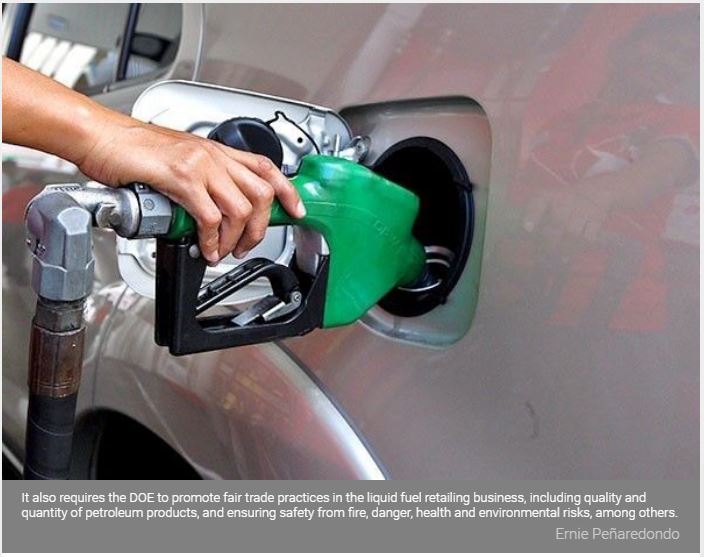Philippines: Oil firms ask court to halt DOE’s unbundling policy
MANILA, Philippines — Several oil companies have asked the courts to stop the oil unbundling policy recently issued by the Department of Energy (DOE), which is set to take effect on June 29.
Major oil player Pilipinas Shell Petroleum Corp. (PSPC) filed a petition with the Taguig Regional Trial Court (RTC), questioning the legality of the oil unbundling policy under Department Circular 2019-05-008.
Energy Secretary Alfonso Cusi signed last month the policy requiring all oil companies to report a breakdown of oil prices, including profit margins.
Under the revised guidelines for the monitoring of the sale of petroleum products sold by oil companies, industry players will now be required to report their “unbundled price adjustments,” including Oil firm import costs, tax burdens, biofuel costs, oil company take components, and other essential cost components that contribute to the changes in retail prices.
While the DOE’s mandate is to monitor oil price movements, PSPC said this policy runs against Republic Act 8479 or the Downstream Oil Industry Deregulation Act of 1998 and “leads the industry back to the path of regulation.”
“Further, it restricts the timing of price adjustments and requires the submission of critical unaudited information that could be prejudicial to the industry players. The circular is also unclear and administratively impossible to comply with,” the oil firm said in a statement.
“To protect its assets, operations, and stakeholders, PSPC is questioning the validity of DOE Department Circular No. DC2019-05-008 and will exercise all legal remedies to address this issue,” it said.
In a separate filing, the Philippine Institute of Petroleum Inc., Isla LPG Corp., PTT Philippines Corp., and Total {Philippines] Corp. lodged a petition for declaratory relief with application for temporary restraining order (TRO) and writ of preliminary injunction with the Makati RTC against the DOE and its new policy.
PIP is an independent body of oil companies and its members include Chevron Philippines Inc., Isla LPG Corp., Petron Corp., PSPC, PTT Philippines Corp., and Total Philippines Corp.
Several provisions of the oil unbundling policy are contrary to the Downstream Oil Industry Deregulation Act and are beyond the scope of the DOE’s authority.
If the policy takes effect on June 29, it “shall cause grave and irreparable injury” to the oil industry.
Since the Downstream Oil Industry Deregulation Act was passed, the government does not interfere with the pricing, exportation, and importation of oil products.
It also requires the DOE to promote fair trade practices in the liquid fuel retailing business, including quality and quantity of petroleum products, and ensuring safety from fire, danger, health and environmental risks, among others.
PSPC said a deregulated downstream oil industry paved the way for a truly competitive market, characterized by many players, varying product offerings, competitive prices, adequate and continuous supply of environmentally-clean and high-quality petroleum products.
“Since deregulation, consumers have enjoyed the freedom to choose their preferred fuels in locations most convenient for them, and at prices that are acceptable to them, availing of discounts, promotions, and other value- added services that their chosen service station offers,” it said.
Energy Secretary Alfonso Cusi said they respect the filings against the agency’s oil unbundling policy which is “part of the democratic process in the exercise of rights.”
However, the DOE has referred the cases to the Office of the Solicitor General (OSG) as their legal counsel.
Meanwhile, DOE assistant secretary Robert Uy said the circular would take effect as scheduled until the courts come out with a decision to stop its implementation.
Source: https://www.philstar.com/business/2019/06/26/1929500/oil-firms-ask-court-halt-does-unbundling-policy#5SaHH9pwby68WrUB.99


 English
English




